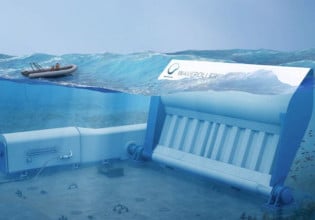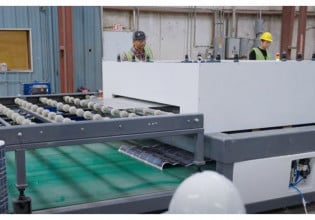Materials and Energy Research Institute Tokyo Ltd. (MERIT) has developed a new direct-borohydride fuel cell (DBFC) technology, which it sees as cheaper and more compact than direct-methanol fuel cell (DMFC) technology. The DBFC technology is similar to DMFCs, but has an anode, a cathode and a membrane. Also, instead of using methanol as fuel, it uses a solution of sodium borohydride. MERIT claims that its fuel cells develop about four times more power for the same area of membrane than DMFCs.
The MERIT fuel cell will measure 80 mm x 84.6 mm x 3 mm, and will be able to produce 20 W of power, enough for a notebook PC. The company intends to stack five of the cells together and connect them in series so that they produce 100 W. Sodium borohydride dissolves in water at room temperature. Dissolved in an alkaline solution at concentrations up to 10%, it can be stored in cartridges shaped like a pen or a printer ink cartridge. A cartridge containing between 10 mL and 20 mL of the fuel solution will provide three hours to four hours of power. In the laboratory, Merit also has built a smaller fuel cell prototype for mobile phones. The device is about 20 mm x 30 mm x 2 mm, and produces 1 W of power. The company is planning to shrink this prototype to about 10 mm², but does not have fixed commercialization plans yet.
A working prototype that is suitable to demonstrate mass production for the industry could be available in four months. Commercial versions should be available in the first few months of 2006, and will cost around $90. The sodium borohydride chemical typically costs about $50 per kilogram, and at this price, a cartridge of it will cost about ¥150 (US$1.40). In about five years, the price could drop to $1 per kilo.
Several US and European chemical companies are eager to sign up to mass produce sodium borohydride. MERIT is talking to two companies outside Japan to produce fuel cells commercially, and also to a number of distributor companies to provide the fuel at retail outlets. The company is confident it will sign contracts for cell manufacturing and fuel distribution before the end of 2004.






